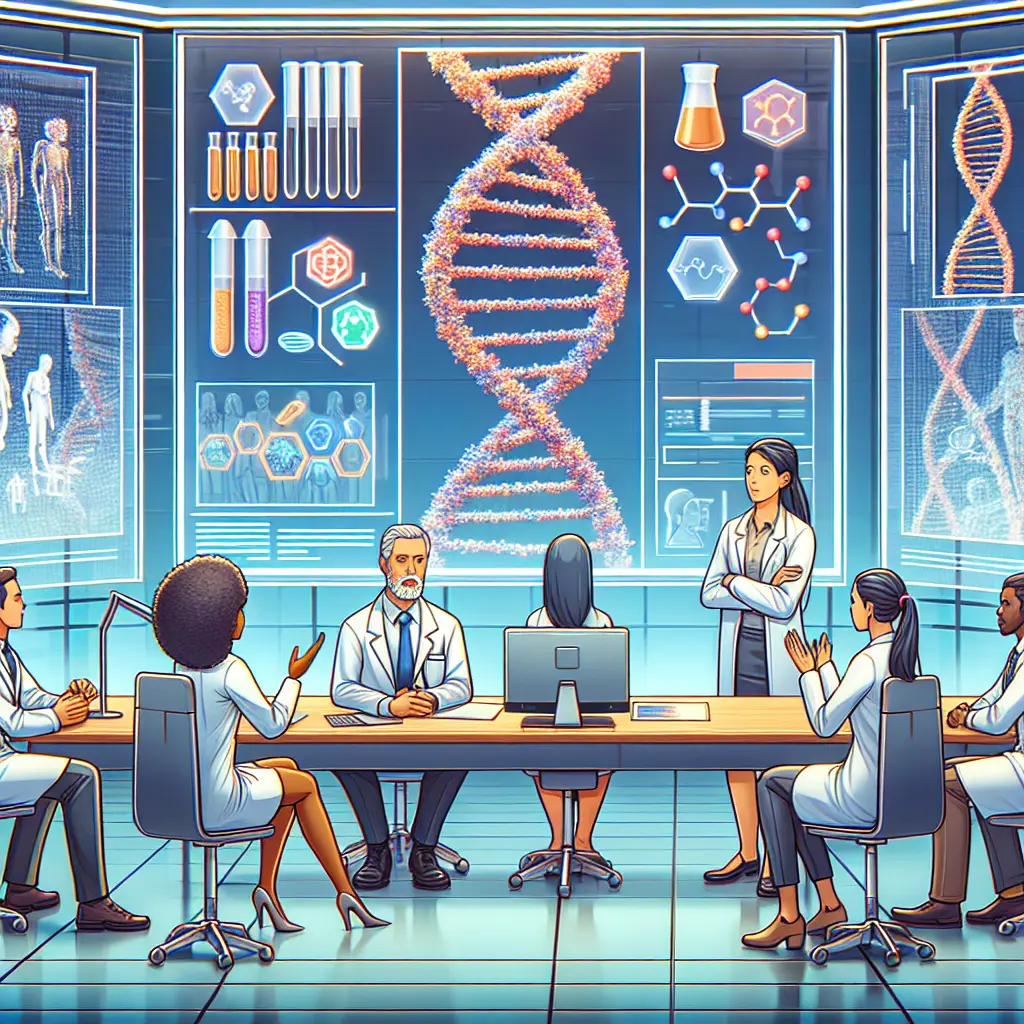
In recent years, the scientific community has witnessed a surge in the capabilities and applications of gene editing technologies, particularly CRISPR, heralding a new era in medicine and biology. However, the rapid advancement of these technologies has sparked a complex debate surrounding gene editing ethics, with discussions focusing on CRISPR ethical issues, genetic modification morality, and the broader implications of bioethics in gene editing.
The Ethical Landscape of Gene Editing
Gene editing, especially through tools like CRISPR, allows scientists to alter DNA sequences and modify gene function with unprecedented precision. This capability raises significant ethical implications, especially when it comes to applications in humans. The debate isn't just about what we can do, but what we should do.
Recent Advances and Ethical Considerations
Curing Blood Disorders: The potential of gene editing was highlighted when the first gene-editing therapy aimed at curing blood disorders showed promise. This therapy could revolutionize treatment for diseases like sickle cell anemia and thalassemia, which affect millions worldwide.
CRISPR for Blood Disorders in the UK: Following these advancements, CRISPR gene-editing is now being offered to British patients suffering from blood disorders. This step marks a significant move from experimental stages to clinical application, underscoring the need for robust ethical guidelines for gene editing.
Addressing Cystic Fibrosis: Researchers have successfully used prime editing to correct the cystic fibrosis mutation in human lung cells, offering hope for a genetic cure. While promising, this application opens discussions on genetic modification morality, especially regarding germline modifications.
Restoring Hearing through Genetic Engineering: A novel genome editing approach has restored hearing in adult preclinical models with genetic deafness. This breakthrough highlights the therapeutic potentials of gene editing but also raises genetic engineering ethical concerns related to enhancements and modifications in adults.
Innovations in Gene Therapy Delivery: The development of novel nanosensing techniques for quality control of viral vectors in gene therapy points to the increasing sophistication of gene therapies. Ensuring the safety and efficacy of these vectors is paramount, as highlighted by responsible gene editing practices.
Genome Editing for Agriculture: Scientists have discovered elements in the rainforest that might help produce drought-tolerant or disease-resistant cacao trees. While this could save chocolate from becoming scarce, it also exemplifies how genetic engineering can impact biodiversity and ecosystem balance.
Editing Gut Bacteria: A mouse study has unlocked possibilities for genome editing of bacteria in the gut, suggesting new ways to treat diseases directly through microbial intervention. This approach, however, brings forth discussions about long-term impacts on human microbiomes and health.
Nanoparticles in Sickle Cell Disease Treatment: The use of nanoparticles to deliver treatment for sickle cell disease showcases another innovative application of gene editing technology. The ethical implications of CRISPR in such treatments are significant, particularly concerning access and affordability.
Heart Disease Reversal in Mice: A new gene editing technique that reverses heart disease in mice presents potential for future human treatments. While this is a monumental step forward, it also intensifies the designer babies ethical debate concerning pre-emptive corrections of heritable diseases.
Ethical Guidelines and Future Considerations
The rapid advancements underscore the urgent need for ethical guidelines for gene editing. These should address both intended and unintended consequences of gene editing technologies. As we navigate these waters, it is crucial that ethical discourse keeps pace with technological advancement to ensure responsible gene editing.
The ethical concerns are manifold and include issues such as consent (especially in germline editing), privacy (in terms of genetic data), equity (ensuring all populations benefit from these technologies), and long-term ecological impacts (particularly with gene drives in non-human organisms).
Concluding Thoughts
As we stand on the brink of potentially life-altering innovations, the discussions around bioethics in gene editing become more pertinent than ever. It's not just about curing diseases or enhancing traits but about shaping the future of humanity responsibly. We must tread carefully, ensuring that ethical considerations guide every step of our journey in genetic engineering.
Thank you for joining me on this exploration of one of science's most thrilling yet challenging frontiers. Here's to a future where innovation is matched by conscience, and technology serves humanity justly and wisely.
— Sarah Brighton